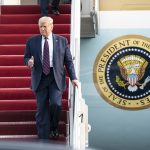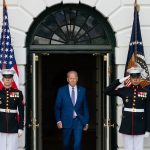Elon Musk, the wealthiest man in the world, is at the center of a brewing debate on what it means to be a populist in today’s political climate. While detractors on both the left and right question his credentials, it’s time to dive into the deeper implications of his actions and philosophies. First off, how can anyone dismiss Musk’s impact on the working class when his primary ambition is to slash government size and reform how taxpayer dollars are spent? It seems those who criticize him are more interested in defending the status quo than actually helping the everyday American.
On the left, Musk’s fortune has become a sticking point. Critics argue that a man with his resources can’t possibly champion the cause of the working American. Meanwhile, some on the right, including political strategist Steve Bannon, voice concerns that Musk’s direction may divert the GOP back to its Wall Street roots, potentially abandoning the working-class support that has become a hallmark of Trump-era politics. But enough with the chatter—what truly matters is Musk’s commitment to dismantling government excess and redirecting funds to proper channels.
Take a look at Musk’s intention behind DOGE, his initiative aimed at trimming government spending drastically. This ambitious move could reportedly chop off as much as $2 trillion from the budget. Skeptics might scoff, insisting that populists don’t primarily focus on cutting spending; however, true populism is about sending a clear message: reduce the bureaucratic behemoth that weighs down the will of the people. Musk, much like the late Ronald Reagan, is attacking a bloated government that primarily benefits an elite class in Washington, rather than John Q. Public.
Historically, populism has been about empowering the ordinary worker and ensuring that their voices are heard above the cacophony of government elites. The roots of the Trump movement can be traced back to the Tea Party’s rebellion against bailouts for failing corporations—a movement fueled by concerns over which citizens truly benefit from government expenditures. It’s worth noting how programs like USAID have become tangled in a web of inefficiency and corruption, with a minuscule percentage of aid making it to those who truly need it. By tackling such bureaucratic failures, Musk isn’t just a tech mogul; he’s a champion for the average taxpayer yearning for change.
What Kind of a Populist Is Elon Musk?https://t.co/mIuBVTE36J
— PJ Media (@PJMedia_com) February 11, 2025
The allure of Washington money has lured many politicians astray, making populists from both sides blind to the ways an insider class siphons off taxpayer dollars while offering paltry gains for the public. In essence, revolutionizing the way government operates isn’t about rejecting individuals like Musk or Trump—both of whom have amassed significant wealth—it’s about tearing down the corrupt, self-serving systems that perpetuate a disconnect between the elite and the electorate.
Ultimately, the true essence of populism is to dismantle the mechanisms that fuel insider privilege while redirecting the focus to what the people genuinely want. By seeking to cut waste and inefficiency, Musk not only releases funds for better purposes but empowers citizens to reclaim control over their finances. When less money is taken from hardworking American families, they can allocate it to causes they personally deem worthy—whether that be local initiatives, international aid, or securing their families’ futures. In this unfolding narrative, Elon Musk emerges, not as a villain of the people, but as a surprising populist hero.




